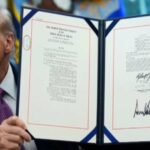In 1981, over 40% of the world’s population lived in extreme poverty. However, as economic growth started to accelerate in developing countries, there was a theory that as people escaped poverty, their thoughts and behaviors would change. Ron Inglehart, a professor at the University of Michigan, organized a global survey team to test this theory. The idea was that as people joined the middle class, they would prioritize education, think more for themselves, and value personal experience over religious books or the authority of kings. The hope was that as countries got richer, their principles would align.
Forty years later, the percentage of the global population living in extreme poverty has dropped to 8%, and more than half are considered middle class. The World Values Survey (WVS), led by Inglehart, has become the world’s largest social-research network. However, the latest wave of results from the survey, covering 2017-2022, shows that the idea of basic values converging as people get richer is only partially true. In fact, the differences in how people think in different parts of the world seem to be widening.
Inglehart believed that the root of people’s thoughts and values is insecurity. In an insecure world, family provides defense against disaster, and religion offers consolation and explanation. However, as wealth spreads and basic insecurity recedes, people may start thinking more for themselves. Inglehart identified two forms of this process and developed ways to measure each.
Overall, the theory that as countries get richer, people’s values align does not hold up completely. While economic growth has lifted many out of extreme poverty and into the middle class, the World Values Survey suggests that the differences in how people think and what they value are widening. Insecurity plays a significant role in shaping people’s thoughts and values, but as wealth spreads and stability increases, individuals may think more independently. The study highlights the complexity of human values and the need for further research to understand the factors that shape them.









